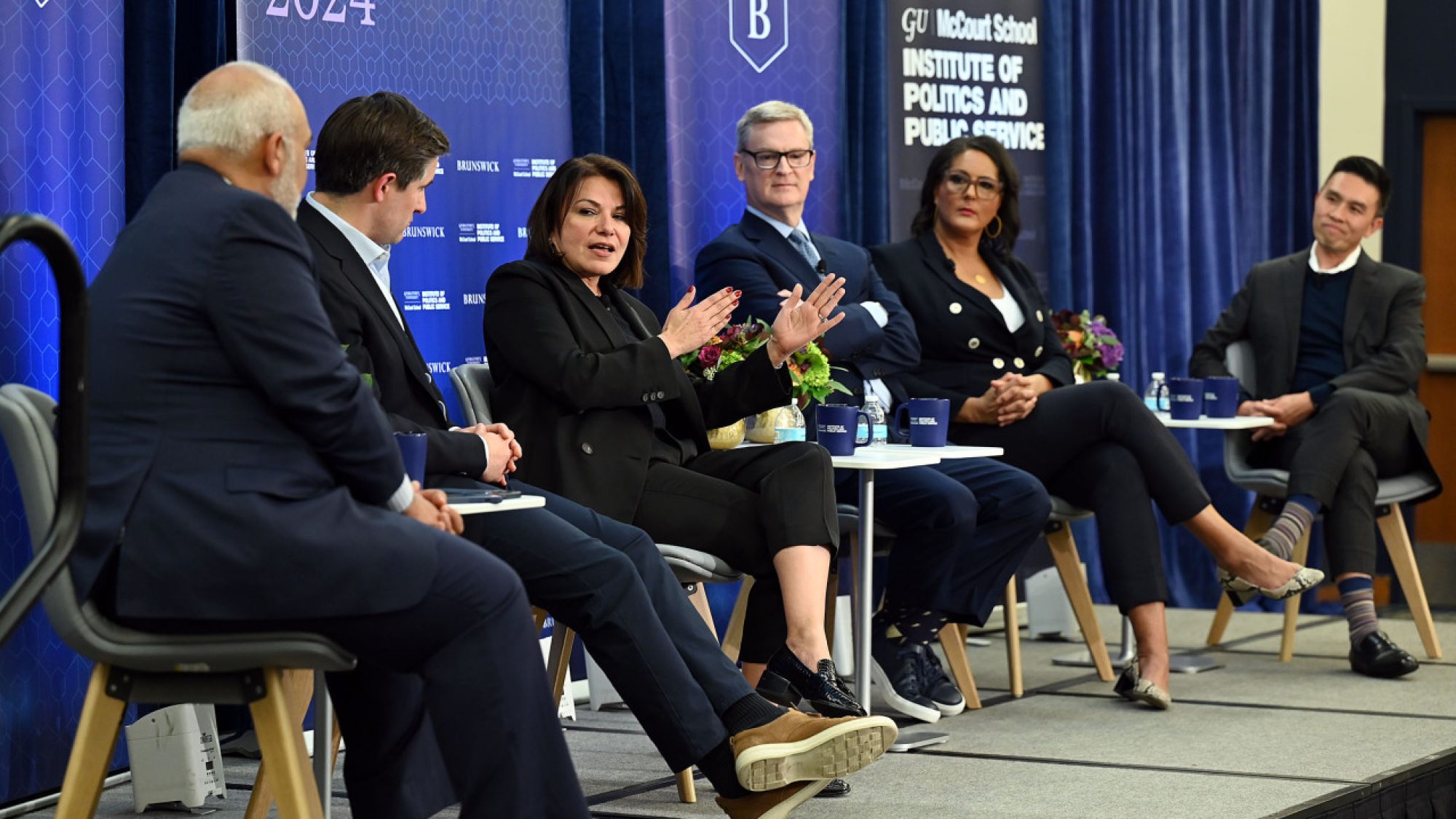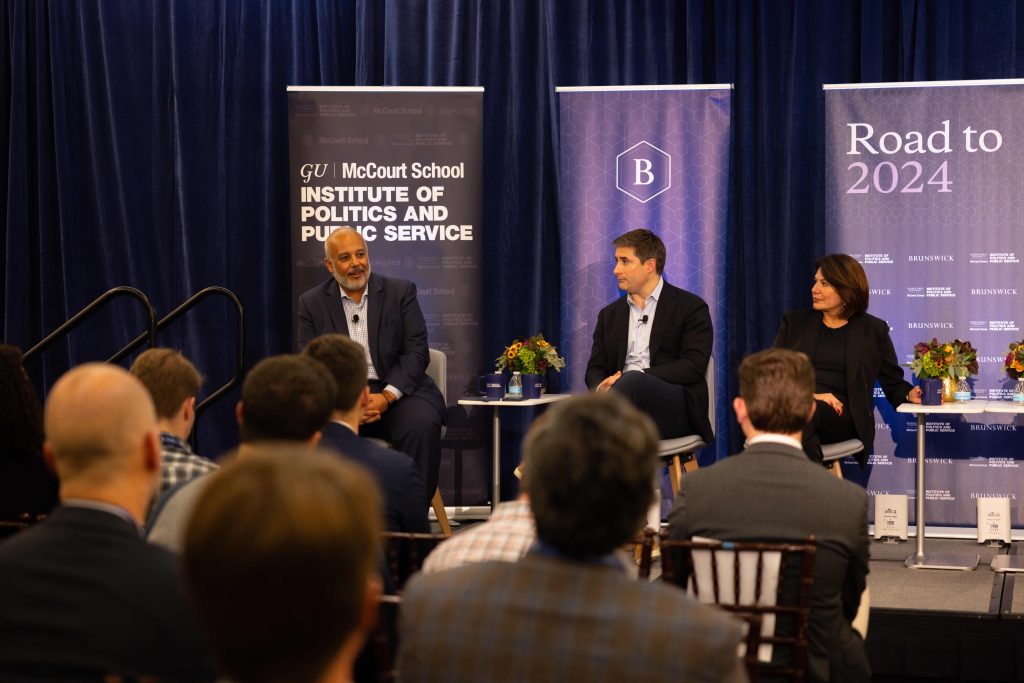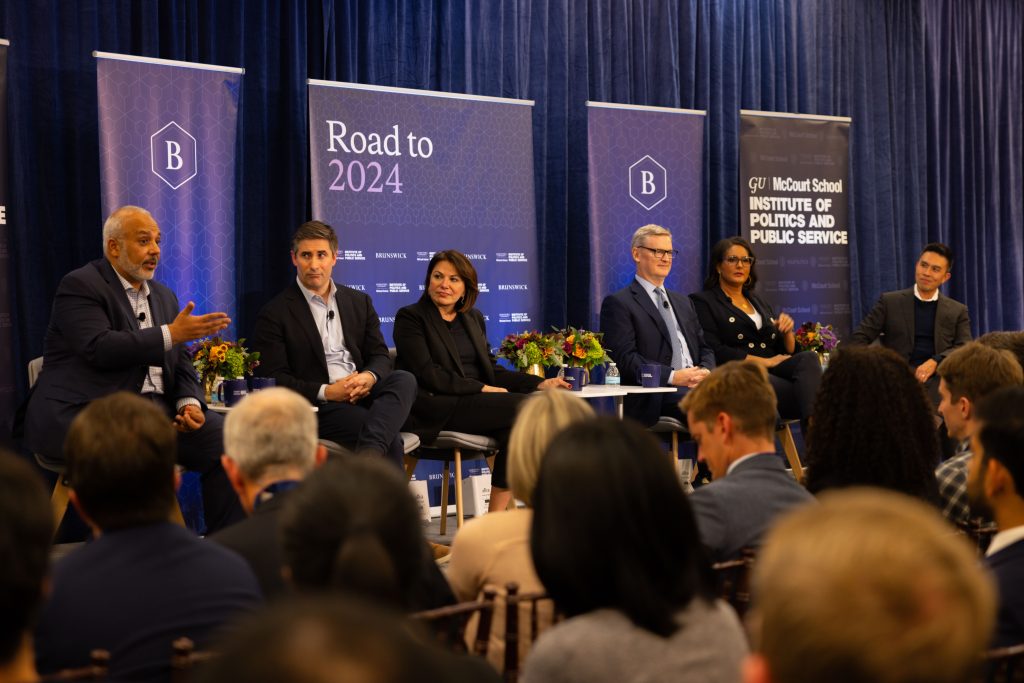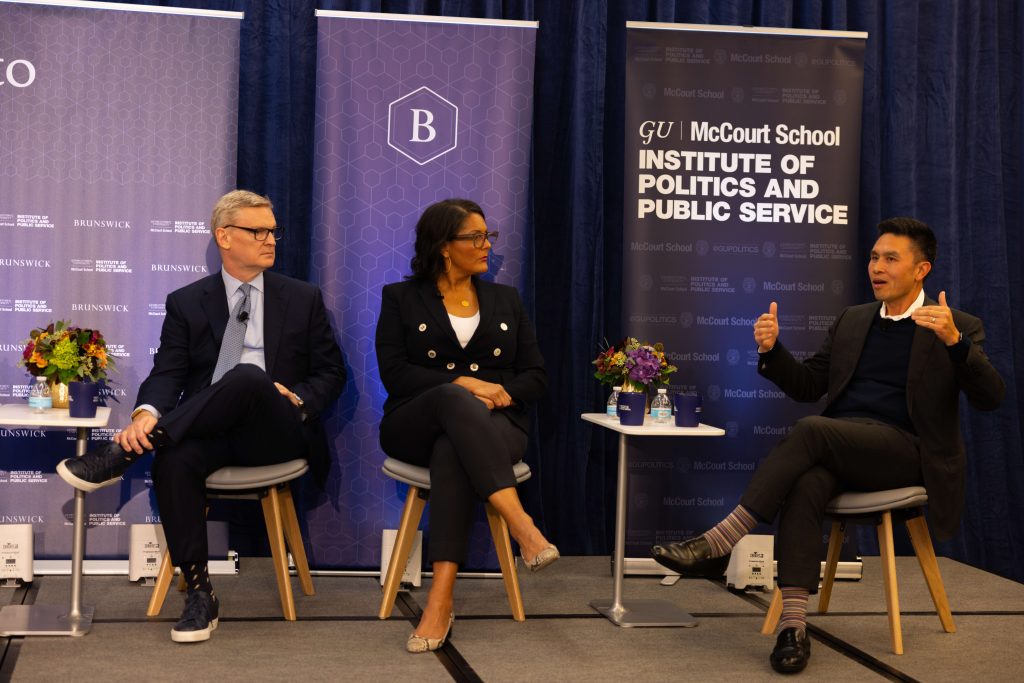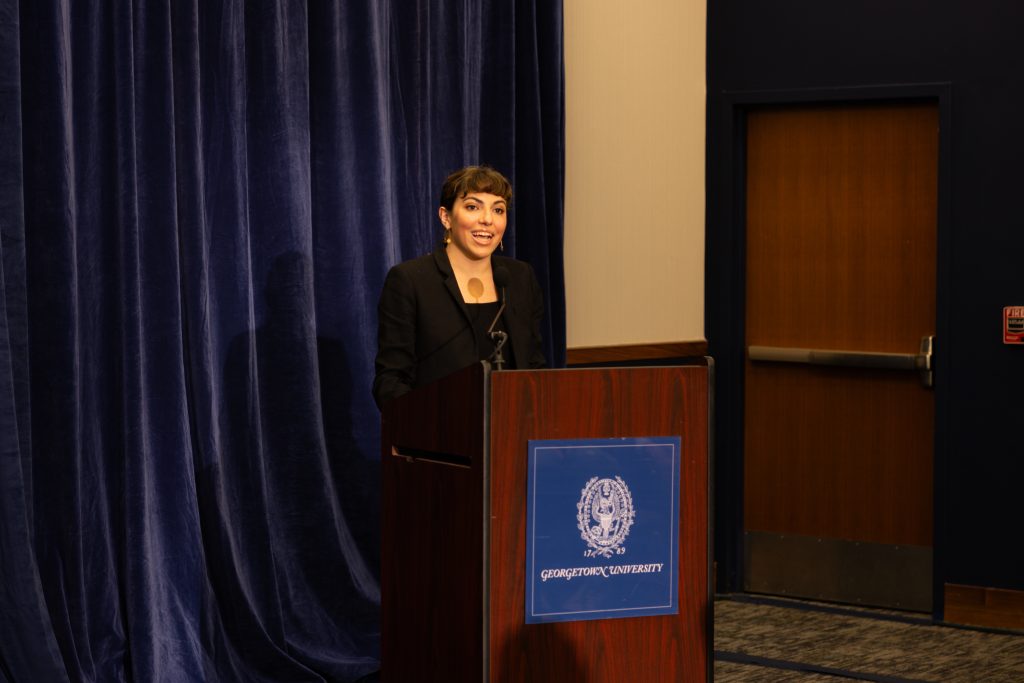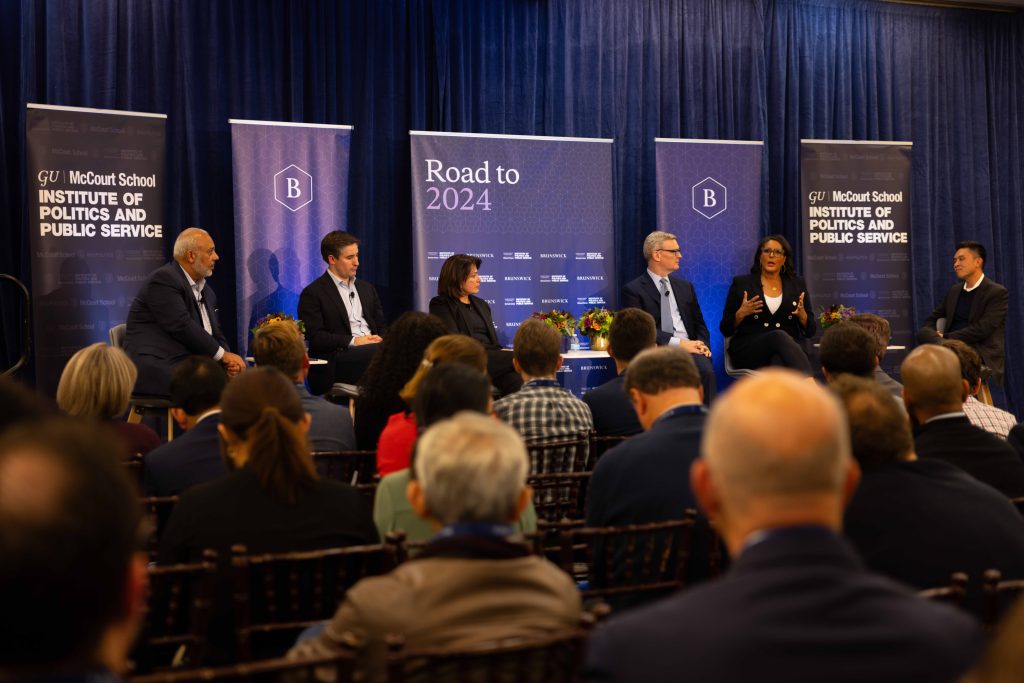On Tuesday, November 7, GU Politics partnered with the Brunswick Group to facilitate a conversation about the 2024 presidential election. Students and professionals gathered at the HFSC Social Room to hear from political commentators and practitioners about the dynamics shaping the road to 2024. This was the first in a series of conversations that will be held around the country in partnership with the Brunswick Group.
Moderated by GU Politics Executive Director Mo Elleithee, the panel featured Patti Solis Doyle, partner and head of U.S. public affairs at Brunswick Group along with Lanhee Chen, partner at Brunswick Group; Karen Finney, political strategist and CNN political commentator and advocate; Mike Shields, founder of Convergence Media, former RNC chief of staff, and Spring 2023 GU Politics Fellow; and Jonathan Swan, political reporter for the The New York Times.
Phoebe Chambers (C’25), who worked on Mike Shields’ Student Strategy Team (SST) last spring and is currently on Craig Minassian’s SST, introduced the panelists.
Mo Elleithee kicked off the event, asking Jonathan Swan about recent public opinion trends, particularly in battleground states, following a New York Times poll that just came out. Swan unpacked what we are seeing in terms of meaningful support for Donald Trump among Hispanic voters and young voters, emphasizing that polls indicate people trust Trump over Biden on issues related to the economy. Swan also noted that whether Trump is convicted next year could be very influential in who voters support.
Next, Patti Solis Doyle talked about why democrats are struggling to build support within their party. On President Biden’s decreasing popularity, Doyle says “It is incredibly frustrating that his message is not resonating.”
She noted that Biden’s old age is an issue that many voters cannot see past. Elleithee also asked Lanhee Chen about his perspective on Biden’s unpopularity. Chen reiterated that many Americans are feeling anxiety about the economy and highlighted how this is a major factor in people’s growing dissatisfaction with the current president.
Elleithee asked Mike Shields about his perspective on how Republican voters are feeling regarding Trump and the other primary candidates. “He brings to the table a group of voters that won’t vote for anyone else,” Shields says about Trump. Shields says that Trump represents changes that have been happening over decades in terms of shifting party ideologies.
Regarding the Democratic party’s goals, Karen Finney discussed how it is important to understand the nuanced ways that people experience the economic and political environment. For example, she talks about how Black voters’ experiences with the economy and with voting access is shaped by racism and that it is important to put in the work to reach Black communities. Finney also thinks people’s overall attitudes reflect how people are frustrated about the choices for candidates in both parties.
Elleithee then asked panelists to talk about how each party is dealing with dissatisfied voters particularly in light of the prospect of a potential Biden and Trump rematch in 2024. Swan emphasized that Trump has benefited from being out of the public space, but the volatility of the political and economic environment makes it hard to make any predictions a year out. Doyle added that neither the Republican presidential candidates nor Biden are really going after Trump.
Finney agreed that being under the radar has helped Trump, but for Biden “it’s got to be about the issues,” meaning that Biden should appeal to voters by emphasizing the values and policies that people care about. Shields notes that Biden’s 2020 campaign was about getting away from the chaos of Trump’s term through strengthening democracy and without this angle in 2024, he is looking like a worse candidate.
Then, the audience had an opportunity to ask the panelists questions. The first question was about the implications of the Israel and Palestine conflict and how it has politically hurt President Biden. Doyle noted that it is a challenge that the president’s party is divided on this issue and people who voted for Biden for normalcy are finding themselves upset and in disagreement with him. Shields wondered if Biden should own his stance regarding a ceasefire and what the consequences of disagreeing with his own party are.
Andrew, a senior at Georgetown, asked about the Democratic party’s narrative, specifically how the party can convince people that Trump is a threat and Biden is worth their vote. Doyle emphasized that Biden’s strategy has been to be formal and presidential and there remains a place for this stance. Finney added that Biden needs to continue to emphasize issues and policies such as reproductive rights, and find ways to make these things about democracy.
A graduate student in the Department of Government asked panelists what they think about the role that China plays in voters’ choices. Chen said that he thinks “both sides are going to try to make the argument that they are tough on China.” He said that even though both parties are making the same case, it is tough for Biden because his administration is currently governing and has to engage directly in foreign relations.
Next, an audience member asked the panelists how the media landscape is going to shape the electorate in the upcoming election. Swan explained how people are increasingly fragmented into news bubbles and young people are even getting their news from TikTok. He expressed that this new reality is hard to change and disappearing local news is a big problem. Shields added that online media is designed to have us fight each other and the younger generation has only known this online world. He said this is dangerous because it can continue to foster political polarization.
Elleithee closed the panel by urging students to stay engaged with these issues, noting that these conversations will continue throughout the next year as GU Politics and Brunswick Group hold discussions across the country leading up to the 2024 election.
This article was written by Jane Wright a first-year graduate student in the McCourt School of Public Policy.
Watch the full recording below.
